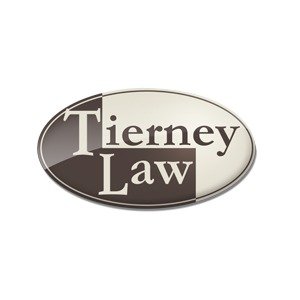Best Child Custody Lawyers in Hobart
Share your needs with us, get contacted by law firms.
Free. Takes 2 min.
Free Guide to Hiring a Family Lawyer
List of the best lawyers in Hobart, Australia
About Child Custody Law in Hobart, Australia
Child custody law in Hobart, Australia is primarily guided by the Family Law Act 1975, which establishes the framework for decisions related to parenting and the best interests of the child. In Australia, the term "child custody" is often referred to as "parenting arrangements" or "parenting orders." The law emphasizes the importance of providing a stable and nurturing environment for children, focusing on their overall welfare and developmental needs. Decisions about parenting arrangements are made with careful consideration of various factors, including the child's relationship with each parent and the potential impact on the child's well-being.
Why You May Need a Lawyer
Seeking legal advice in child custody matters is often essential due to the complexity and emotional nature of these disputes. Common situations where a lawyer's expertise may be needed include:
- Disagreements between parents regarding where the child should live or specific parenting responsibilities.
- Concerns about a child's safety that may justify supervised visits or restricted access.
- Negotiating changes to existing parenting orders or agreements due to changes in circumstances.
- One parent attempting to relocate with the child, which would affect existing arrangements.
- Cases involving international custody disputes or considerations.
- Issues related to child support or financial responsibilities associated with raising the child.
Local Laws Overview
The Family Law Act 1975 is the core legislation governing child custody matters across Australia, including Hobart. Key aspects include:
- Best Interests of the Child: The paramount consideration in all custody matters, assessing various factors such as the child's views, relationships with family members, and any risk of harm.
- Shared Parental Responsibility: The presumption that it is in the child's best interests for both parents to have shared responsibility, unless circumstances suggest otherwise.
- Parenting Orders: These can encompass decisions about where the child will live, time spent with each parent, and other parental duties.
- Dispute Resolution: Encouraging parents to use mediation and other forms of alternative dispute resolution before proceeding to court.
Frequently Asked Questions
What is the difference between custody and parenting orders in Australia?
In Australia, the term "custody" is outdated; the current focus is on "parenting orders," which outline the responsibility for the care and welfare of the child, including where the child will live and visitation schedules.
What does 'best interests of the child' mean?
The 'best interests of the child' refers to various considerations for ensuring the child's safety, maintaining meaningful relationships, and providing a stable and supportive environment.
How can I change an existing parenting order?
To change an existing order, you must demonstrate a significant change in circumstances and either reach an agreement with the other parent or seek a court order.
Can my child choose which parent to live with?
A child’s views are considered based on their age and maturity, but there is no set age for a child to make this decision independently.
What should I do if I cannot reach an agreement with the other parent?
Consider mediation or family dispute resolution services before proceeding to court as these processes are often required before filing an application.
What is supervised visitation?
Supervised visitation ensures a parent can spend time with their child in a controlled environment to ensure the child’s protection and support.
Are grandparents entitled to visitation rights?
Grandparents do not have automatic rights but can apply for a court order to have contact with their grandchildren if it serves the child’s best interests.
Can I relocate with my child without the other parent's consent?
No, relocating a child significantly can affect existing arrangements, and consent from the other parent or a court order is typically required.
What are parenting plans?
Parenting plans are written agreements voluntarily made between parents setting out parenting arrangements and are flexible but not legally enforceable.
What happens if one parent does not comply with a parenting order?
Non-compliance can result in legal consequences, and the affected parent can seek court intervention to enforce the order.
Additional Resources
Consider using resources and contacting organizations such as:
- Family Court of Australia: Offers resources and tools for understanding family law procedures.
- Legal Aid Tasmania: Provides legal advice and support services for child custody matters.
- Family Relationship Centres: Offer mediation and family dispute resolution services.
- Relationships Australia: Offers support and counseling services for families facing custody issues.
Next Steps
If you need legal assistance in child custody matters, start by gathering all relevant documents, such as existing parenting orders or agreements. Consider seeking initial consultation with a family law attorney to discuss your specific situation. Legal Aid Tasmania and family dispute resolution centers offer support and mediation services to facilitate negotiations and guide you through the legal process. Engaging with these resources can provide clarity and help in navigating the complexities of child custody law.
Lawzana helps you find the best lawyers and law firms in Hobart through a curated and pre-screened list of qualified legal professionals. Our platform offers rankings and detailed profiles of attorneys and law firms, allowing you to compare based on practice areas, including Child Custody, experience, and client feedback.
Each profile includes a description of the firm's areas of practice, client reviews, team members and partners, year of establishment, spoken languages, office locations, contact information, social media presence, and any published articles or resources. Most firms on our platform speak English and are experienced in both local and international legal matters.
Get a quote from top-rated law firms in Hobart, Australia — quickly, securely, and without unnecessary hassle.
Disclaimer:
The information provided on this page is for general informational purposes only and does not constitute legal advice. While we strive to ensure the accuracy and relevance of the content, legal information may change over time, and interpretations of the law can vary. You should always consult with a qualified legal professional for advice specific to your situation.
We disclaim all liability for actions taken or not taken based on the content of this page. If you believe any information is incorrect or outdated, please contact us, and we will review and update it where appropriate.

















